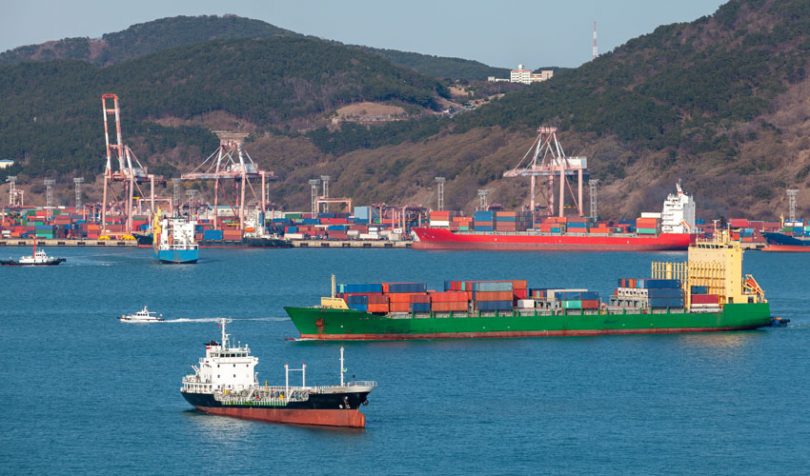Last week the Port of Busan in Korea announced plans to launch a production blockchain following a successful pilot. The 5th business port in the world intends to use blockchain to track the movement of containers between terminals at the port. South Korea’s Ministry of Science and Technology and the Ministry of Maritime Affairs and Fisheries were involved in the pilot at the end of last year.
Apart from the terminals, the test project involved five companies, including shipping and transport companies. The containers are transferred between the terminals using trucks, so the drivers used a smartphone application.
Containers being transferred from one ship to another accounts for 16% of the Port’s total volumes. In addition to efficiencies, the Port Authority hopes to reduce the number of errors. The intention is to provide real-time container information to the shipping companies, as well as data for the trucking companies.
For the trucking companies, it should reduce the time spent waiting to enter and exit terminals. Also, at the moment, the return journey for trucks often has no load. The Port Authority expects that return loads will increase and envisions a “dramatic increase of logistics transportation efficiency.”
The latest project will commence in August and is expected to go into production in October. The participants will be the container terminals in Busan New Port, five shipping companies and ten transportation firms.
“After adopting the blockchain-based ITT [inter-terminal transportation] system, the Authority will continue to improve the logistics flow in Busan Port by establishing an integrated logistics platform to make container entry/exit reservation possible,” said a port authority representative.
The announcement didn’t say who the technology partner is. But Samsung SDS was involved in a 2017 test with the Port of Busan. The technology company is also working with the Port of Rotterdam, another very proactive port. In the latter case, it’s part of the DELIVER blockchain project alongside ABN Amro aiming to improve interoperability between different blockchains.
Other ports involved with blockchain include Singapore’s PSA which is part of both the IBM/Maersk TradeLens project and the Global Shipping Business Network (GSBN) . Other TradeLens port members include the Port of St Petersburg, the Spanish ports of Algeciras and Valencia, and the Port of Halifax.
Recent market research indicates that blockchain will be shipping industry’s fastest growing technology.







